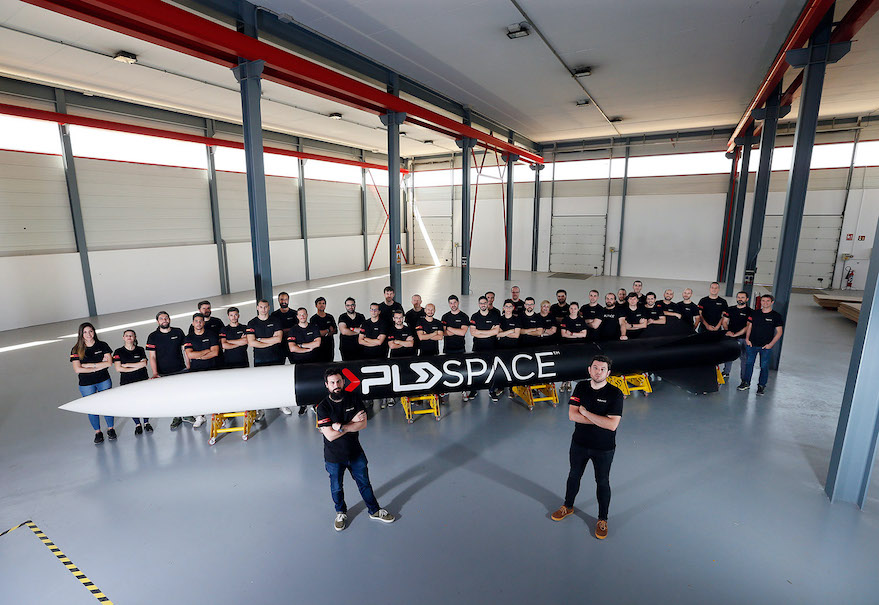Products You May Like
VALLETTA, Malta — Launch startup PLD Space of Spain raised 7 million euros ($8.2 million) this week from Madrid-based investment bankers Arcano Partners to continue development of its Miura family of partially reusable rockets.
PLD Space spokeswoman Lorena Santos said Sept. 17 the new investment will allow the Elche, Spain-based company to add at least 10 people to its roughly 40-person staff as it works toward a late 2021 or early 2022 debut of its Miura 1 suborbital rocket.
The investment is part of an ongoing Series B funding round being managed by ArcanoBlueBull, a four-year-old technology M&A firm that merged with Arcano Partners earlier this year.
Santos declined to say when PLD Space expects to close its Series B round or how much it seeks to raise. The company’s nearly 17-million-euro Series A round — raised with BlueBull’s help — took more than two years to close, wrapping up in 2019 with a 9-million-euro tranche.
Jon Garaiyurrebaso, an investment banking partner at Arcano Partners, said PLD Space is the firm’s first foray into Spain’s space technology sector. “Although there are a few technological challenges to overcome, we think PLD is in the path to be one of the very few players in a global industry,” Garaiyurrebaso told SpaceNews via email.
Arcano Partner’s 7-million-euro infusion comes less than a month after PLD Space announced Miura 1’s development was back on track after losing its first flight engine on the test stand last year.
Prior to losing the kerosene-fueled Teprel-B engine during a May 2019 hot-fire test, PLD Space planned to conduct Miura 1’s maiden launch that year. After standing down for several months, the Teprel-B returned to the test stand, completing a mission-duration two-minute burn announced in February. Late last month, the company said it had met additional technical milestones, including a successful series of Teprel-B thrust vector control tests.
PLD Space has booked two customers for Miura 1’s debut. The flight is slated to carry four student-and-faculty-built experiments from the Embry-Riddle Aeronautical University in Florida, and two microgravity experiments from the University of Bremen’s Center of Applied Space Technology and Microgravity in Germany.
In addition to the six experiments, half the rocket’s payload space will carry a suite of sensors that will track every detail of its maiden flight. PLD Space plans to use what it learns from the maiden Miura 1 flight and subsequent flights of the suborbital rocket to continue its development of the partially reusable Miura 5, a microsatellite launcher being designed to carry 300 kilograms to low Earth orbit.
PLD Space was founded in 2011 with the vision of fielding the first European reusable rockets.
